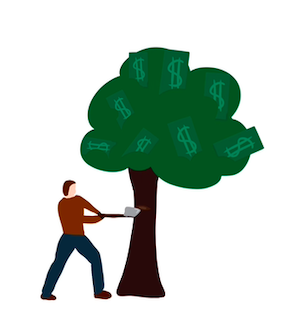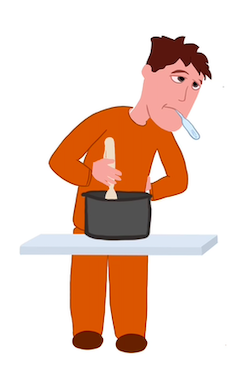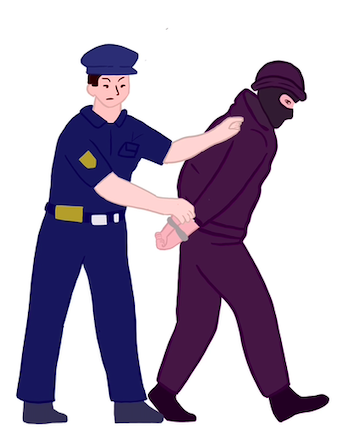There were a total of eight propositions on the ballot in California for the 2024 elections. Propositions are measures that have the ability to veto or create laws if passed by more than 50% of California’s electorate.
They can appear on the ballot in two ways. If enough people sign a petition, then a proposition can be added to the ballot. Alternatively, the California State Legislature can place propositions on the ballot. If a law passes that would require amending the California constitution, it may need the approval of the people.
According to the Associated Press, Props 3, 4, 35 and 36 passed while Props 5, 6, 32 and 33 did not. Ballot propositions, however, are often confusing for voters to understand. According to an Oct. 30 article from CalMatters, “every election, there are complaints that the proposition titles are too slanted or just too confusing.” This article will go in depth about props 4, 6, 32 and 36 to clarify their goals and impact.
Proposition 4

Prop 4, which was passed by a 59.6% majority as of Nov. 19, authorizes bonds for water, wildfire and land protection measures, according to the Associated Press.
The proposition was placed on the ballot by the state legislature.
Palo Alto High School science teacher Nicole Loomis said she supports the goals of Prop 4.
“I tend to vote for ballot measures that fund education and the environment, like clean water and preventing wildfires,” Loomis said.
The opposition to the proposition is focused on the budget.
By passing this measure, California agrees to incur $10 billion, which will be paid in installments of around $400 million per year over the next 40 years.
“It is a significant amount of money, and California is in a significant amount of debt, so it’s a fair argument on the other side, but we are kind of in a critical situation with the wildfires right now,” Loomis said.
Now that the measure has been passed, 3.8 billion of the 10 billion bond will be used to improve water quality across the state.
Nearly $2 billion will be spent on projects that aim to lessen the effects of wildfires and extreme heat.
Smaller sums from the bond have been allocated for clean energy projects, agriculture and natural land protection.
Proposition 6

(Divya Gandhi)
Prop 6 didn’t pass, receiving only 46.6% of the vote as of Nov. 19, according to the Associated Press.
Prop 6 would have eliminated a provision in California’s constitution allowing involuntary servitude as punishment for prisoners.
The provision’s removal was proposed because it is seen as a continuation of slavery.
Esteban Nunez, a leading consultant for the Prop 6 campaign, said he believes Prop 6 would not only remove the problematic aspects of involuntary servitude in our prison system but also prevent repeat offenses.
“Forced labor just creates this very difficult system that doesn’t allow folks the opportunities to wholeheartedly be able to rehabilitate themselves,” Nunez said.
Nunez said he believes that the biggest issue with involuntary servitude in prison is the lack of flexibility offered with the hours and shifts.
“If you have a work assignment that … conflicts with … college hours or hours that the educational facility is open, your work assignment takes precedence, even if you get approval from your supervisor,” Nunez said.
Though there was no official opposition statement for Prop 6, it did have criticisms, which Esteban said were unfair.
“Some of the arguments that they made was that this would lead to minimum wage in prison, which is completely inaccurate,” Nunez said. “I think people also thought that Prop 6 would mean nobody’s going to work in prison, which is just completely, again, I think, inaccurate, and comes from a lack of experience.”
As it was added on the ballot in late June, his team found it difficult to gain enough momentum to pass the proposition.
Esteban said he believes it didn’t pass due to a lack of understanding of what the proposition would do.
“We didn’t have ‘slavery’ in our ballot title summary,” Nunez said. “So voters, when they read the ballot summary, there was no connection to slavery for voters.”
Five other states have passed similar propositions, including Nevada during these elections.
Nunez is disappointed that voters didn’t approve Prop 6.
“For me, it’s disappointing, because California, we pride ourselves on our values and our morals,” Nunez said “And for me, it’s like, how can you say that when a form of racism lives and breathes in the document that is supposed to embody our principles, that being the state constitution?”
Proposition 32

(Divya Gandhi)
Prop 32 was vetoed, with a close margin of 50.8% to 49.2%, as of Nov. 19. If passed, Prop 32 would have immediately raised the minimum wage to $17 per hour for businesses with 26 or more employees, with an increase to $18 per hour at the start of 2025. Businesses with under 25 employees would pay $18 an hour starting Jan. 1, 2026.
Supporters believe that a higher minimum wage would help people afford basic necessities in an expensive state.
“I honestly think it [a low minimum wage] is shameful,” Paly senior Caroline Groden said. “California has one of the highest costs of living, especially in Palo Alto and the Bay Area, in the entire United States, and $18 an hour is just not enough money to live on.”
A study conducted by the Institute for Research on Labor and Employment at the University of California, Berkeley, found that substantial and gradual pay increases had “no significant effects” on unemployment.
However, opponents of the proposition believe that raising the minimum wage will hurt businesses that are already struggling to recover from the pandemic.
They point to a survey conducted by West Hollywood officials, where 42% of businesses reported that they laid off or cut hours for their staff following a wage increase in the city.
Proposition 36

Prop 36 passed with an overwhelming majority of 68.5%, as of Nov. 19. This means that the offense for crimes such as certain theft and drug offenses will be raised from misdemeanors to felonies.
Currently, non-repeat offenders found guilty of theft of under $950 receive a misdemeanor. The existing law is in place because of Proposition 47, which was passed in 2014, with a 59.61% majority. It aimed to end or lower jail time for many non-violent crimes. Instead, it is believed to have encouraged the shoplifting that has run rampant in cities across California since people can now commit petty theft without the threat of harsh penalties.
Paly junior Will Stover supports the bill, as he said he believes it will crack down on crime in California.
“It significantly decreases the incentive for these looters and shoplifters to continue looting and cause all these issues in our city, especially in San Francisco,” Stover said. “So I think that this was definitely a necessary measure that California readily adopted.”
A concern is that Proposition 36 will only punish people for minor crimes, leading to higher costs and overcrowding for California’s prison and justice system. The Official Voter Information Guide estimates the fiscal impact to range from tens to hundreds of millions of dollars for the state’s criminal justice system to hold the prisoners.



